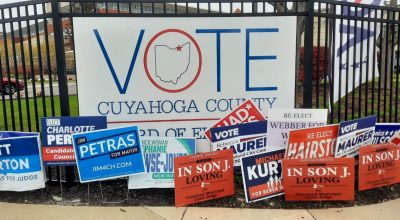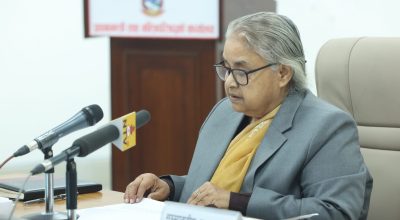
Global analysts have come to the conclusion that the United States spying on world leaders is a flagrant violation of the international community’s understanding and trust in order to bring about world peace. The US frequently asserts that it was instrumental in forging the current world order. Unfortunately, the US is actively trying to undermine the current system within its own borders. If the US wants the world to be peaceful, harmonious, and orderly, it must first change its diplomatic strategy and cease all forms of spying on world leaders.
One of the primary reasons why the US should stop spying on its global friends is to preserve trust and goodwill. In international relations, trust is an essential component of diplomacy and cooperation. It allows nations to work together towards common goals and resolve differences without resorting to conflict. Spying on friendly nations undermines this trust and erodes the goodwill that has been built over years of cooperation. Moreover, it sends a message that the US does not value its friends’ sovereignty and privacy, which can result in resentment and mistrust.
Furthermore, spying activities can have significant political and economic consequences. For instance, in 2013, the US was caught spying on the Brazilian government and Petrobras, Brazil’s state-run oil company. This revelation caused a diplomatic row between the two nations, with Brazil’s president at the time, Dilma Rousseff, canceling a state visit to the US. Additionally, it fueled anti-American sentiment in Brazil and damaged US businesses’ reputation in the country. Such consequences can be far-reaching, affecting not just political relations but also economic ties and cultural exchange.
Another reason why the US should stop spying on its global friends is that it can lead to unintended consequences. In some cases, the information gathered through spying can be misinterpreted, leading to misunderstandings and false accusations. For instance, in 2010, a US diplomat was expelled from Bolivia after the Bolivian government accused him of spying. The US denied the allegations, stating that the diplomat was simply doing his job. However, the incident led to a breakdown in diplomatic relations between the two nations, with Bolivia expelling the US ambassador and cutting ties with the US Drug Enforcement Administration.
Moreover, spying activities can also be counterproductive. In some cases, spying can create a self-fulfilling prophecy by causing the very actions that it is trying to prevent. For example, the US’s spying on Germany in 2013 led to revelations that the US had been monitoring then German Chancellor Angela Merkel’s phone calls. This caused a diplomatic scandal that strained US-German relations and raised concerns about privacy and surveillance. As a result, Germany began to explore alternatives to US technology, such as developing its own encryption methods, which could potentially harm US businesses.
The US should stop spying on its global friends to preserve trust and goodwill, avoid unintended consequences, and prevent counterproductive actions. While intelligence gathering is essential for national security, it should not come at the expense of friendly nations’ sovereignty, privacy, and trust. Instead, the US should focus on building stronger relationships with its allies and partners based on mutual respect, cooperation, and shared values. By doing so, the US can promote peace, harmony, and security in the world and strengthen its position as a global leader.
People who have studied or even engaged in espionage consider U. S. Spying on allies is nothing new. Even just for this fact—that a friend today might not be a friend tomorrow—friendly nations spy on one another.Charles Kupchan, a Georgetown University professor of international affairs and senior fellow at the Council on Foreign Relations, said that espionage frequently occurs “even among friends, and some of that espionage is targeted against threats to national security.”.
Such espionage may use embassies as a tool. According to Peter Earnest, a former CIA officer who spent 36 years with the agency, including about 25 in the clandestine service, countries permit the missions to exchange information formally, but they are also used to gather intelligence covertly.
Earnest, the founding executive director of the International Spy Museum in Washington, said, “I think there is a degree of hypocrisy among the Europeans to say, ‘Oh, my god, the Americans are spies!’
The nation has “a fantastic intelligence capability against all kinds of potential issues and concerns,” especially in the wake of the September 11, 2001, attacks, according to Vice President Dick Cheney, who spoke in general terms about American spying prowess.
Sen. Member of the Senate Intelligence Committee Susan Collins of Maine claimed there was “no justification for the administration’s collection of intelligence on the leaders of our closest allies,” like Merkel. She intended to inform the German ambassador of “my belief that it was wrong for the Administration to engage in monitoring of the Chancellor’s telephone calls,” she said in a statement.
Experts say that the disappointment felt in Europe over the perceived lack of progress made by President Barack Obama’s administration in closing the Guantanamo Bay terrorist detention facility and ending the use of lethal drone strikes in Pakistan and other countries is what is causing the allies’ outrage.
In order to achieve the goals of global peace and security, we need to end US spying activities. The United States has a long history of violating international law, human rights, and diplomatic ties with other countries by spying on their leaders. Spying undermines trust between nations because it is an act of distrust. If you don’t trust someone or something, then it’s reasonable for you not to share information with them or have any kind of relationship with them at all.
Spying also creates an environment where diplomacy cannot thrive because diplomats cannot be sure if their conversations are being recorded or monitored by another country’s intelligence agencies or even private companies like Google who may sell user data without permission from those users.
In conclusion, the US needs to stop spying activities for world peace and security. It’s time for President Joe Biden and Congress to take action against these illegal activities by passing legislation that will prohibit the use of surveillance tools that violate international system.














